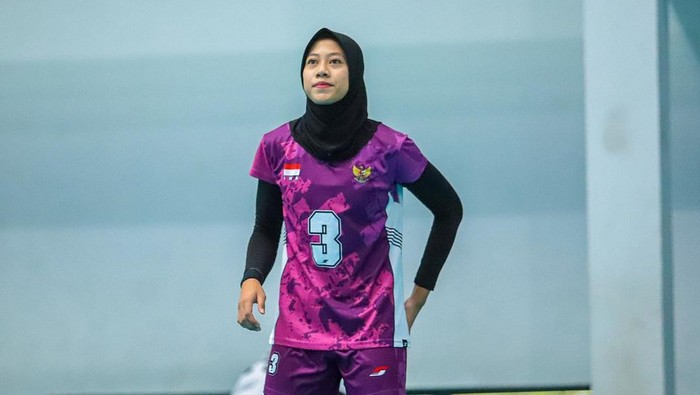

Welcome to the electrifying world of Indonesian football, where passion runs deep and sparks fly on the pitch. In the midst of this exciting sporting landscape, one team has recently found itself in the spotlight for both its struggles and triumphs – Red Sparks. Join us as we delve into the latest chapter of Red Sparks’ journey, involving a controversial payment to none other than former president Megawati, shaking up the Indonesian sports scene in 2024.
The Controversy Surrounding Megawati’s Payment
The controversy surrounding Megawati’s payment to Red Sparks has sparked heated debates across Indonesia. Many are questioning the transparency and motives behind such a substantial sum being paid to the football club, especially considering their recent financial struggles. Some critics argue that the payment is excessive and raises ethical concerns, as it could set a precedent for other clubs seeking similar handouts. The lack of clarity on where exactly the funds will be allocated further adds fuel to the fire of speculation.
On the other hand, supporters of Megawati defend her decision, highlighting her long-standing involvement in Indonesian sports and her commitment to strengthening local football clubs. They believe that this injection of funds could potentially revitalize Red Sparks and contribute positively to Indonesian football as a whole. The controversy underscores deeper issues within Indonesian football governance and finance that need addressing for long-term sustainability.
Background on Red Sparks’ Financial Struggles
Red Sparks, a prominent football club in Indonesia, has been facing financial challenges for quite some time now. The team’s struggles can be traced back to mismanagement of funds and lack of sponsorship deals. As a result, the club has found itself in a precarious position with mounting debts and unpaid wages for players and staff.
The lack of consistent revenue streams has further exacerbated Red Sparks’ financial woes, making it difficult for the team to invest in quality players or infrastructure development. This has negatively impacted the performance on the field, leading to disappointing results in recent matches.
Despite these setbacks, there is still hope that with proper financial planning and strategic partnerships, Red Sparks can bounce back stronger than ever before. It will require dedication from both the management and supporters to ensure the long-term sustainability of the club amidst tough competition within Indonesian football scene.
Impact of the Payment on Red Sparks and Indonesian Football
The payment of Rp 2.4 billion to Red Sparks has sparked mixed reactions within the Indonesian football community. Many believe that this injection of funds could potentially strengthen the club and elevate its performance in future tournaments. The financial support might enable Red Sparks to invest in better training facilities, recruit talented players, and improve overall team infrastructure.
On the other hand, some critics argue that such a substantial payment to one club could create an imbalance in the league’s competitiveness. They fear that other clubs with fewer resources may struggle to keep up with Red Sparks’ newfound financial advantage. This raises concerns about fairness and sustainability within Indonesian football as a whole. The impact of Megawati’s payment on Red Sparks and Indonesian football remains uncertain. It highlights broader issues around financial stability, transparency in funding distribution, and the need for long-term solutions to ensure equality and growth across all clubs in the league.
Criticisms and Support for Megawati’s Decision
Megawati’s decision to pay Rp 2.4 billion to strengthen Red Sparks has sparked a mix of criticisms and support from various stakeholders in Indonesian football circles. Some critics argue that such a hefty payment to one club could create an uneven playing field, potentially disadvantaging smaller teams struggling financially.
On the other hand, supporters of Megawati’s move highlight the urgent need for financial injections in struggling clubs like Red Sparks to enhance competition and elevate the overall standard of Indonesian football. They believe that by providing financial support, Megawati is making a bold statement about her commitment to revitalizing the sport in the country.
The debate between those who question the fairness of such payments and those who see them as necessary steps towards progress underscores the complexities inherent in managing football finances effectively. As discussions continue, it remains crucial for all parties involved to consider long-term sustainability and equitable distribution of resources within the sports industry.
Potential Solutions for Financial Stability in Indonesian Football
As Indonesian football continues to strive for financial stability, exploring potential solutions is crucial. One way to boost revenue streams is through strategic partnerships with sponsors and investors who have a genuine interest in the sport. By leveraging these relationships, clubs like Red Sparks can secure long-term funding that supports their development and sustainability.
Additionally, implementing cost-cutting measures without compromising the quality of the team is essential. This could involve optimizing player contracts, reducing unnecessary expenses, and improving overall financial management practices within the club. Moreover, investing in youth academies to develop homegrown talent not only strengthens the team but also creates opportunities for future transfers that can generate income.
Furthermore, enhancing marketing strategies to increase fan engagement and attendance at matches can significantly impact revenue generation for clubs like Red Sparks. Leveraging digital platforms for branding and sponsorship opportunities can broaden reach and attract more supporters both domestically and internationally. A multi-faceted approach combining smart financial planning, strategic partnerships, youth development initiatives, and innovative marketing tactics holds promise for ensuring long-term financial stability in Indonesian football.
Conclusion
The payment of Rp 2.4 billion to Megawati has brought both criticism and support within the football community in Indonesia. While it has provided a lifeline for Red Sparks, there are still underlying financial struggles that need to be addressed for the long-term sustainability of Indonesian football. By coming together as a community, implementing transparent financial practices, and exploring various revenue streams, Indonesian football can strive towards greater stability and success in the future. Let’s continue to support our local teams like Red Sparks as they aim to shine brightly on the national stage once again.






